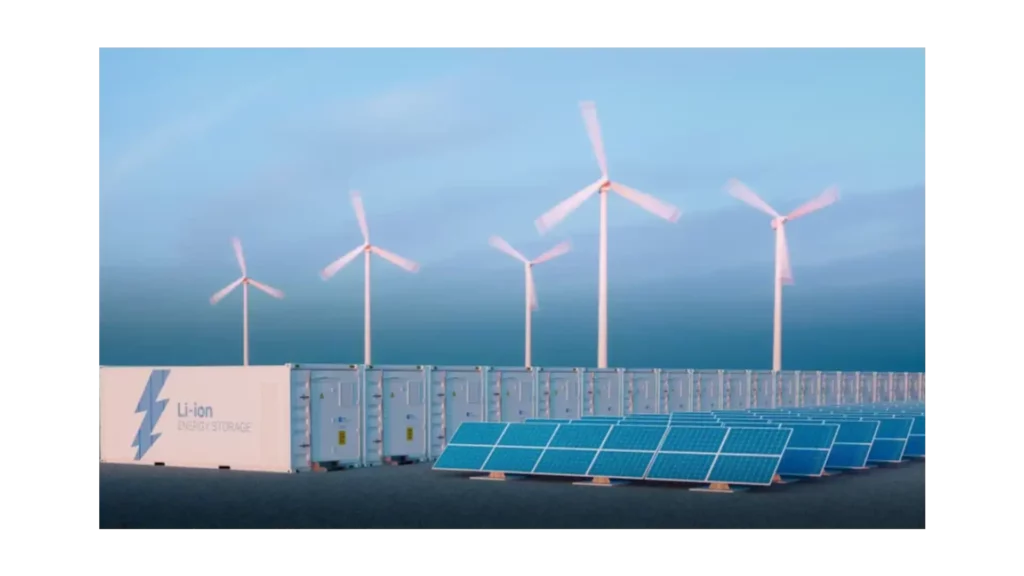In an era where the demand for clean, reliable, and efficient energy sources is at its peak, batteries and energy storage technology have emerged as the unsung heroes of the energy industry.
These remarkable devices play a pivotal role in the transition towards a more sustainable and resilient energy ecosystem.
In this guide, we will delve deep into the world of batteries and energy storage technology, exploring their history, types, applications, and the transformative impact they have on various industries.
Understanding the Basics
The Evolution of Batteries
Batteries have a rich history, starting with the ancient Baghdad Battery. Now, we have various advanced batteries for specific needs.
From the modest lead-acid batteries that drive our cars to the state-of-the-art lithium-ion batteries employed in smartphones and electric vehicles, the realm of batteries has witnessed extraordinary progress.
What is Energy Storage Technology?
Energy storage technology encompasses a broader concept that includes not only batteries but also various other methods of storing and utilizing energy efficiently.
These methods range from pumped hydro storage to flywheels, supercapacitors, and more.
Energy storage technology allows us to store surplus energy generated during periods of low demand and use it when demand is high, thus optimizing energy distribution.
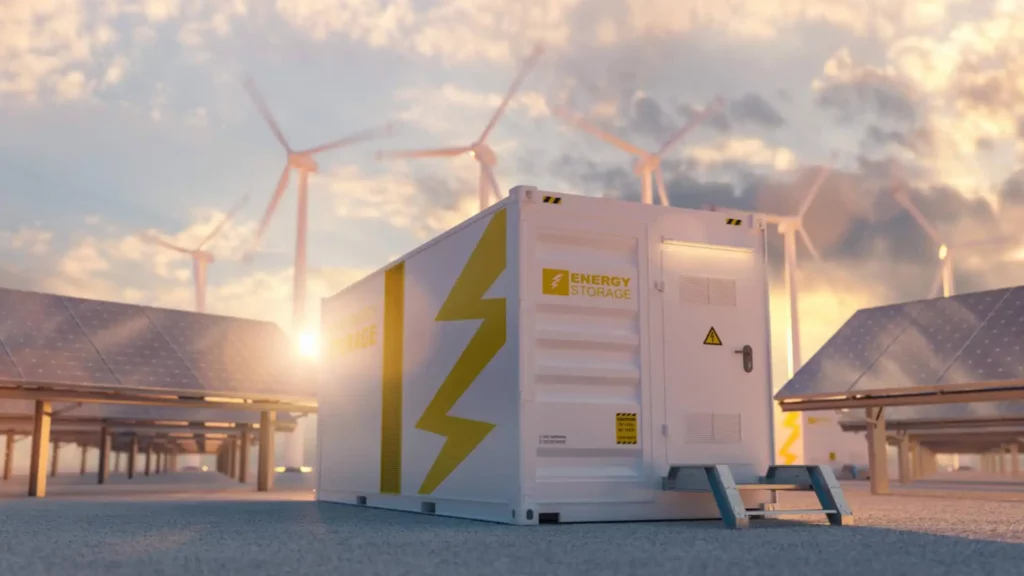
Types of Batteries Energy Storage Technology
- Lithium-Ion Batteries: Lithium-ion batteries are arguably the most prevalent and versatile type of battery in use today. They power our smartphones, laptops, and electric vehicles (EVs), and even store renewable energy in grid applications.
- Lead-Acid Batteries: Lead-acid batteries have been in existence for over a century and remain the go-to choice for automotive applications. They are known for their reliability, affordability, and robustness.
- Nickel-Metal Hydride (NiMH) Batteries: NiMH batteries strike a balance between the high energy density of lithium-ion batteries and the affordability of lead-acid batteries.
- Other Battery Technologies: Beyond these mainstream options, there are emerging battery technologies like solid-state batteries, sodium-ion batteries, and even biological batteries that harness the power of microorganisms.
Applications of Batteries and Energy Storage Technology
- Renewable Energy Integration: One of the most significant applications of energy storage technology is the integration of renewable energy sources into the grid. Solar and wind power are intermittent, and energy storage provides a means to store excess energy during periods of high generation.
- Electric Vehicles (EVs): The global shift towards electric mobility would not be possible without advanced batteries. Lithium-ion batteries have become the standard in EVs, offering increased range, faster charging times, and reduced emissions.
- Consumer Electronics: Our smartphones, laptops, and wearable devices rely on batteries to keep us connected and productive. Advances in battery technology have led to longer battery life, faster charging, and more efficiency.
- Backup Power and Microgrids: Energy storage technology plays a critical role in ensuring backup power during grid outages. Home battery systems like Tesla's Powerwall and commercial-scale energy storage solutions provide peace of mind and help reduce the strain on the grid during peak demand.
- Industrial Applications: In industries such as manufacturing, logistics, and telecommunications, batteries and energy storage systems help optimize operations, reduce downtime, and save costs.
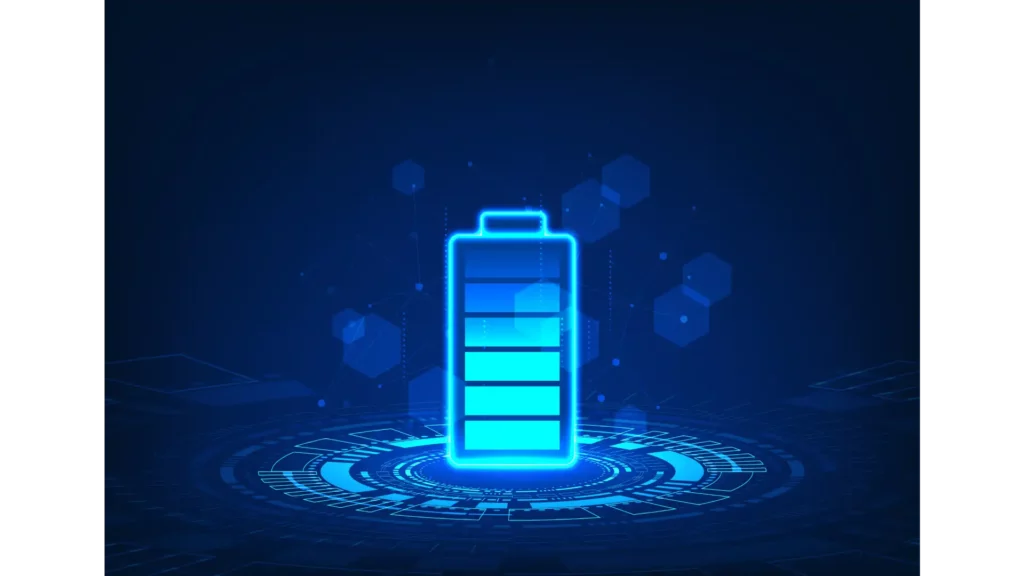
Batteries and Energy Storage Technology: Advancements and Innovations
- Solid-State Batteries
Solid-state batteries represent a significant leap forward in battery technology. They replace the liquid electrolyte found in traditional lithium-ion batteries with a solid electrolyte, offering higher energy density, faster charging, and improved safety.
- Sodium-Ion Batteries
Sodium-ion batteries are being explored as a more sustainable alternative to lithium-ion batteries. They use sodium as the charge carrier instead of lithium, which is more abundant and less costly.
- Biological Batteries
Biological batteries leverage the metabolic processes of microorganisms to generate electricity. Researchers are exploring the use of bacteria and fungi to create bio-batteries that could have applications in remote sensors and environmental monitoring.
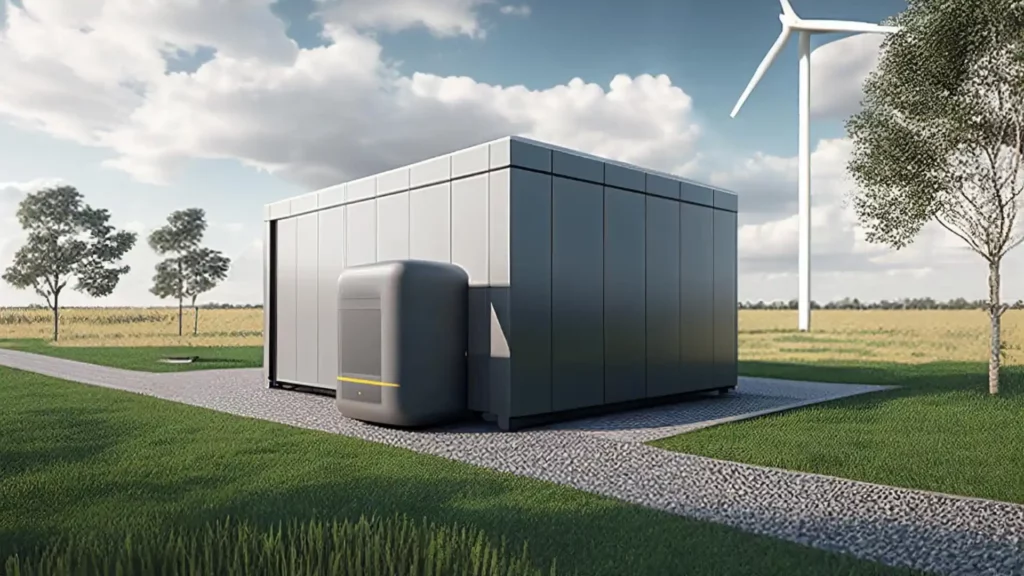
Leading Energy Storage Technology Companies
In the ever-expanding landscape of energy storage technology companies, several companies have taken the forefront in developing innovative solutions and shaping the industry.
- Tesla, Inc.
- Tesla is synonymous with cutting-edge energy storage technology, offering products like the Powerwall for residential use and the Powerpack and Megapack for commercial and grid-scale applications.
- Tesla's Gigafactories are revolutionizing battery manufacturing, aiming to drive down costs and increase production capacity.
- LG Chem
- LG Chem is a global leader in lithium-ion battery manufacturing, supplying batteries for electric vehicles and energy storage systems worldwide.
- Their residential energy storage product, the LG RESU, has gained popularity for its high energy density and reliability.
- Panasonic Corporation
- Panasonic collaborates with Tesla on battery development and production, contributing to the success of Tesla's electric vehicles and energy storage solutions.
- They are also involved in developing advanced solid-state batteries, pushing the boundaries of energy storage technology.
- BYD Company Limited
- BYD is a Chinese multinational company that produces electric vehicles, solar panels, and energy storage systems.
- Their innovative energy storage products cater to both residential and commercial markets.
- Siemens Energy
- Siemens Energy specializes in grid-scale energy storage solutions and grid management technologies.
- Their products and expertise play a crucial role in integrating renewable energy sources and enhancing grid stability.
- NEC Energy Solutions
- NEC Energy Solutions is known for its advanced energy storage systems, particularly in grid applications.
- Their AEROS® energy storage platform offers high-performance solutions for utilities and large-scale projects.
- Schneider Electric
- Schneider Electric provides a wide range of energy management solutions, including energy storage systems and microgrid solutions.
- Their commitment to sustainability and energy efficiency drives innovation in energy storage technology.
- Samsung SDI
- Samsung SDI is a prominent player in the lithium-ion battery industry, supplying batteries for various applications, including electric vehicles and energy storage.
- Their focus on research and development keeps them at the forefront of battery technology.
- AES Corporation
- AES specializes in sustainable energy solutions, including energy storage and renewables.
- They are actively involved in grid-scale energy storage projects, helping to modernize energy infrastructure.
- Enphase Energy
- Enphase Energy is a leader in solar and energy management technologies, offering smart energy solutions for residential and commercial customers.
- Their Ensemble™ energy management system integrates solar, storage, and grid management for maximum energy efficiency.
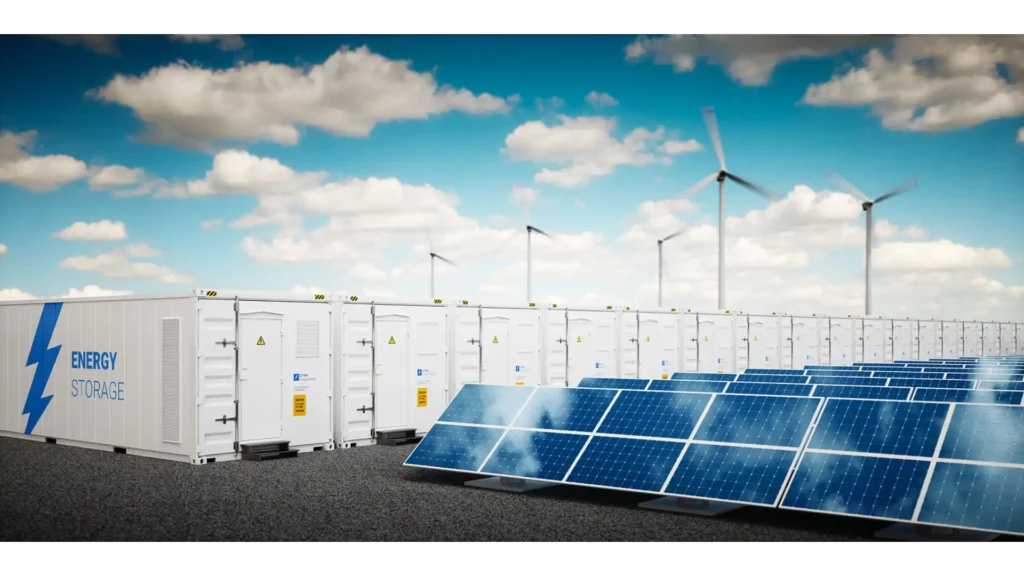
Battery Energy Storage Technology for Power Systems an Overview
Battery Energy Storage Technology for Power Systems is a transformative solution that has reshaped the landscape of electricity generation, distribution, and consumption.
This innovative technology, often referred to as battery energy storage systems (BESS), plays a pivotal role in enhancing the resilience and efficiency of power systems, making them more adaptable to the challenges of the modern world.
- Enhancing Grid Reliability with Battery Energy Storage Technology for Power Systems
One of the primary advantages of integrating Battery Energy Storage Technology for Power Systems is its ability to enhance grid reliability. BESS acts as a rapid-response solution to address voltage fluctuations and frequency deviations, thus ensuring a stable and uninterrupted supply of electricity.
- Renewable Energy Integration and Energy Storage Battery Technology
The synergy between renewable energy sources and Energy Storage Battery Technology for Power Systems is undeniable. These systems are pivotal in efficiently storing surplus energy generated from renewable sources such as solar and wind.
- Grid Resilience and Backup Power Solutions
Energy Storage Battery Technology for Power Systems is a linchpin in enhancing grid resilience and providing reliable backup power solutions. Microgrids, equipped with BESS, offer self-sustaining power systems capable of delivering electricity even during grid outages.

Batteries and Energy Storage Technology: Frequently Asked Questions (FAQs)
1. What are the key benefits of using batteries and energy storage technology?
Batteries and energy storage technology offer several advantages, including energy efficiency, the integration of renewable energy sources, reduced carbon emissions, enhanced grid stability, and improved backup power solutions.
2. Are there any environmental concerns associated with batteries and energy storage technology?
Yes, there are environmental concerns related to battery manufacturing and disposal, particularly with traditional lead-acid and lithium-ion batteries. However, ongoing research focuses on sustainable materials and recycling methods to mitigate these issues.
3. How do solid-state batteries differ from traditional lithium-ion batteries?
Solid-state batteries differ from traditional lithium-ion batteries in that they use a solid electrolyte instead of a liquid one. This design provides benefits such as higher energy density, faster charging, improved safety, and potentially longer lifespan.
4. What is the role of batteries in the renewable energy sector?
Batteries play a critical role in the renewable energy sector by storing excess energy generated from sources like solar and wind during periods of low demand. This stored energy can then be used when demand is high, ensuring a stable and reliable power supply.
5. Can energy storage technology help reduce electricity costs for businesses?
Yes, energy storage technology can help businesses reduce electricity costs by optimizing energy usage during peak demand periods and providing backup power during grid outages. This can lead to significant cost savings in the long run.
6. Are there any emerging battery technologies that could disrupt the market?
Yes, emerging battery technologies such as sodium-ion batteries and biological batteries have the potential to disrupt the market by offering sustainable alternatives to traditional lithium-ion batteries. These technologies may reduce our reliance on rare and expensive resources.
7. What role does energy density play in the development of batteries?
Energy density is a critical factor in battery development. Higher energy density means that a battery can store more energy for its size and weight, leading to longer-lasting devices and electric vehicles with extended ranges. Researchers are actively working on improving energy density.
8. How can consumers contribute to a more sustainable use of batteries and energy storage technology?
Consumers can contribute to sustainability by recycling old batteries, choosing products with environmentally friendly battery options, and supporting companies that invest in sustainable battery manufacturing practices.
9. What is the future outlook for batteries and energy storage technology?
The future of batteries and energy storage technology is promising. Ongoing research and innovation will continue to drive improvements in efficiency, affordability, and environmental sustainability, shaping a more sustainable and energy-efficient future.
10. Are there government incentives or subsidies available for adopting energy storage technology?
Many governments around the world offer incentives, tax credits, and subsidies to encourage the adoption of energy storage technology, particularly for renewable energy integration and electric vehicles. These incentives can vary by region, so it's essential to check with local authorities for specific programs.
Batteries and Energy Storage Technology Conclusion
Batteries and energy storage technology are powering the world's transition to a more sustainable and energy-efficient future.
From powering our devices to enabling renewable energy integration and revolutionizing transportation, their impact is undeniable.
As we look to the future, ongoing research and innovation will shape the evolution of batteries, making them even more efficient, affordable, and environmentally friendly.

